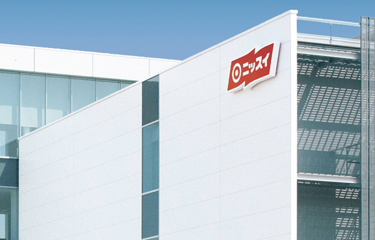Nissui’s annual profits affected by weak yen, higher costs

Nissui released its consolidated financial results for fiscal year 2022, ending 31 March, 2023, revealing higher sales on account of a rebound from loosened Covid-19 measures, but lower operating profits mainly due to higher material costs.
The Tokyo, Japan-based seafood conglomerate’s report and related presentation materials highlighted a net sales increase of 10.7 percent, reaching JPY 768 billion (USD 5.5 billion, EUR 5.1 billion), up from JPY 693 billion (USD 4.9 billion, EUR 4.6 billion) in 2021, while its operating profit fell 9.6 percent to JPY 24.4 billion (USD 175 million, EUR 162 million), from JPY 27 billion (USD 193 million, 180 million) in 2021. Ordinary profit was also down 14.2 percent to JPY 27.7 billion (USD 198 million, EUR 184 million) from JPY 32.3 billion (USD 231 million, EUR 215 million).
Its stock paid dividends of JPY 8 (USD 0.06, EUR 0.05) for Q2 and JPY 10.00 (USD 0.07, EUR 0.07) for the Q4 2022, resulting in an annual total of JPY 18 (USD 0.13, EUR 0.12), more than JPY 2 (USD 0.01, EUR 0.01) higher than 2021. Japanese companies pay out dividends semi-annually. The forecast annual dividend for FY2023 is JPY 20 (USD 0.14, EUR 0.13).
Nissui's recording of high sales and low operating profits is due to several factors, it said. Japan's foodservice economy improved as a whole in FY2022 as people started to dine out after the Japanese government lifted its pandemic emergency declaration and introduced a domestic travel discount program.
On 12 April, 2021, less than a month after Japan lifted its state of emergency in Tokyo for the Olympics, the Japanese government declared a less restrictive “quasi-emergency” that still placed limits on the operating hours of restaurants. This was in place in 18 prefectures, including the major cities of Tokyo and Osaka, until 22 March, 2022, when the government lifted all emergency measures, resulting in a rebound of sales.
According to the Tokyo-based Japan Foodservice Association, foodservice sales in 2022 rose 13.3 percent from the previous year. Sales in March of 2023 were 18.8 percent higher than in the same month of 2022. Compared with pre-pandemic 2019 levels, fast food sales rose 13.2 percent, and casual dining chain sales rose 6.7 percent. However, pubs and izakaya restaurants – where Japan’s residents often mingle in close quarters after work – have only recovered to 35.5 percent of the 2019 level.
Meanwhile, the yen weakened and inflation increased as resource prices rose due to Russia’s invasion of Ukraine. There has also been anxiety about unstable resource supplies, increasing energy and labor costs, and the influence of inflation and interest rate hikes in many areas.
Unlike the U.S. and many other countries, the Bank of Japan opted to maintain low interest rates. As a result, the yen fell in value. Nissui said in its presentation materials “the business environment is becoming more complicated by [a more] rapid yen depreciation than expected and fluctuations in the marine product market.”
Nissui’s sales for restaurants and delicatessen sections at mass retailers in Japan reflected the relaxed Covid-19 restrictions as consumers began to dine out again. Other financial complications were caused by inflation and increased raw material and energy costs, as well as the time it took to institute price increases in response to the depreciating yen, deteriorating Nissui's profit level.
Some of Nissui's seafood products enjoyed greater popularity in 2022, including ...
Photo courtesy of Nissui





Share